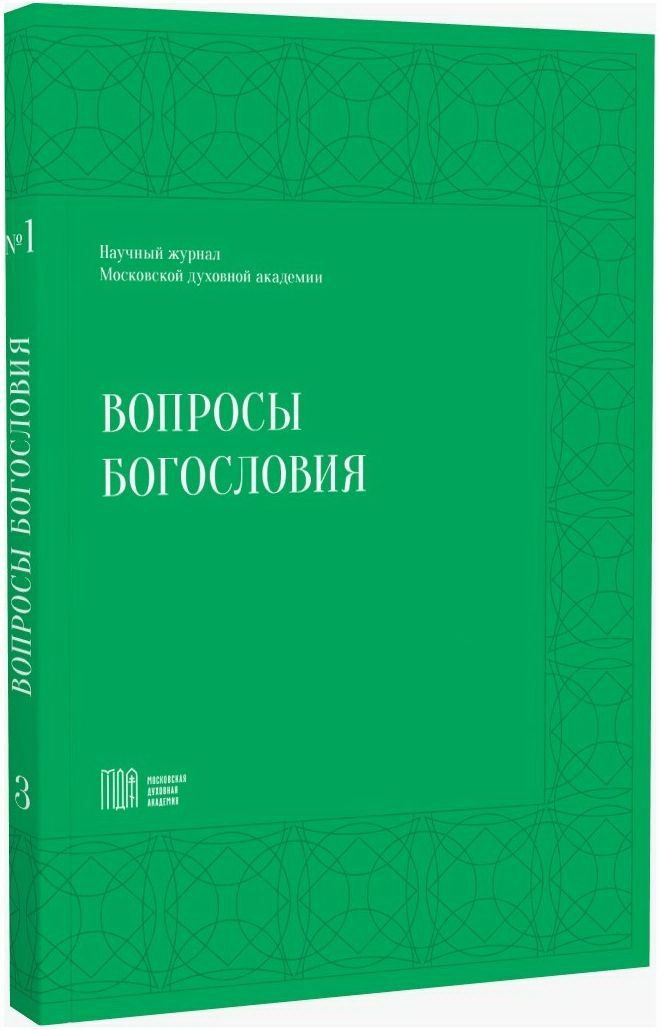Historical Thought: from Factography to Theological Synthesis
DOI:
https://doi.org/10.31802/PWG.2022.7.1.005Keywords:
philosophy of history, neopatristic synthesis, crisis of historicism, Christian anthropology, theology of personality, theological synthesis, biblical historicismAbstract
The purpose of the work is to review the genesis of historical thought - from its ancient prototypes to the present.The widespread criticism of the very foundations of European science, which took place over many decades, beginning in the second half of the 19th century, leading to a change in the scientific paradigm at the turn of the 19th and 20th centuries, requires great caution in constructing explanatory models, as well as justifying the research tools themselves, before apply it. In the article, history itself acts as a toolkit as “metalogy for all logic”.
The specifics of the biblical philosophy of history are described, the biblical foundations of the formation of European historical thought, the ways of transforming historical thought in the Middle Ages, the Renaissance and the New Age are traced.
In the 19th century, in the transition to non-classical philosophical systems, non-classical models of the historical process also emerged. Became a crisis of historicism, which deepens in the next century and, as a consequence, leads to the intensification of eschatological topics ("end of history", "posthistory", etc.). Anti-historicism becomes the dominant direction of philosophical and historical thought. The extraordinary complexity of the social dynamics of the 19th – 20th centuries, the “unmodelability” of social processes give rise to the idea of the absence of historical determinism between eras. In the crisis of the twentieth century, the so-called "anthropological turn" leads to anthropologization, among other areas of scientific knowledge, and historiosophical thought. In the concept of neopatristic synthesis, which became the basis of a whole direction of religious and philosophical thought of the 20th–21st centuries, the perspective of a theological synthesis of history, philosophy and anthropology open.
Downloads
References
Бальтазар Х. У. Теология истории. М.: Институт философии, теологии и истории св. Фомы, 2006.
Бахтин М. В. Богословское осмысление истории. М.: Издательство Московского института духовной культуры, 2006.
Бердяев Н. А. Смысл истории. М.: Мысль, 1990.
Блок М. Апология истории или Ремесло историка. М.: Наука, 1986.
Гердер И. Г. Идеи к философии истории человечества. М.: Директ-Медиа, 2007.
Гесиод. Труды и дни. 109–201 // Фрагменты ранних греческих философов. Ч. I. М., 1989. С. 34–36.
Иоанн Дамаскин, прп. Точное изложение православной веры. М.: Приазовский край, 1992.
Иустин (Попович), прп. Догматика Православной Церкви: Эсхатология. М.: Издательский Совет Русской Православной Церкви, 2005.
Кимелев Ю. А. Философия истории. Системно-исторический очерк // Кимелев Ю. А. Философия истории. Антология. М.: Аспект-пресс, 1995. С. 3–19.
Лосев А. Ф. Античная философия истории. СПб.: Алетейя, 2000.
Михайлов П. Б. Категории богословской мысли. М.: Изд-во ПСТГУ, 2013.
Момджян К. Х. Введение в социальную философию. М.: Высшая школа; КД «Университет», 1997.
Полный православный богословский энциклопедический словарь. Т. 2. М.: Концерн «Возрождение», r1992.
Поппер К. Нищета историцизма. М.: Прогресс, 1993.
Поппер К. Открытое общество и его враги. Т. 2. М.: Феникс, 1992.
Рупова, Р. М. Дорогов Алексей Александрович // Философы современной России. Энциклопедический словарь. 4М.: Энциклопедист-Максимум, 2016. С. 124–127.
Рупова Р. М. Неопатристический синтез как религиозно-философское течение ХХ–XXI веков: религиоведческо-антропологический анализ. Дисс. доктора филос. наук. М., 2019. [Электронный ресурс]. URL: https://www.ranepa.ru/docs/dissertation/rupova-r-m-dissertation.pdf (дата обращения 13.11.2019).
Тойнби А. Дж. Постижение истории. М.: Айрис-пресс, 2004.
Флоровский Г. В. Спор о немецком идеализме // Флоровский Г. В. Христианство и цивилизация. СПб.: Издательство РХГА, 2005. С. 402–423.
Хайдеггер М. Письмо о гуманизме // Хайдеггер М. Время и бытие: статьи и выступления. М.: Республика, 1993. С. 192–220.
Шпенглер О. Закат Европы. Минск: Попурри, 2009.
Downloads
Published
How to Cite
License

This work is licensed under a Creative Commons Attribution-ShareAlike 4.0 International License.







